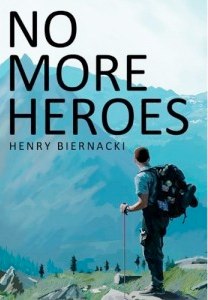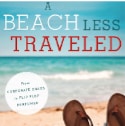
The first two thirds of the book document conversations and interactions between Niklas, a frequent world traveler with noticeably smelly feet, and his new friend, “Foxybird” (or Suria). They form an unlikely friendship as she is nearing the end of her life. Her illness is not the focus, but perhaps motivates her desires for the experiences and conversations with Niklas. Their conversations cover a wide range of topics. What begins as Niklas sharing his stories of travels and resulting insights (since Foxy has not traveled), develops in to a mutual sharing of wisdom and exploration. The last third of the book is set in Nepal, as Niklas travels to spread Foxy’s ashes per her wishes, and the reader sees more of Niklas’ travel style and philosophy in action.
There are many wonderful “nuggets” of wisdom throughout the book, about life, relationships and travel. Here are a few favorites that relate to travel specifically:
“The most important days to talk to people about what they learned when they traveled were the first couple days after they returned home because all their feelings were close to their thoughts and they have not gotten back to the normal programming of everyday life.”
“For me it is more about seeking something that is very unnatural at first but growing to become at ease with it such as a new country. You are not completely full when you leave a country unless you enjoy their food, their chaos, or their language.”
“A traveler is a true diplomat. Each traveler needs to search out the seedy places in a country…A traveler doesn’t have a compass turning to a destination but rather a limited vision to an open horizon. His heart is truly as free as the needle of that compass spinning out of control. He wants it to spin forever.”
“When we travel anywhere it should be another law of the universe to look for commonality rather than a difference between people.”
The book clearly reflects the author’s own experiences and insights gained from his own years of traveling. The writing style doesn’t always flow smoothly, however. The book is really a collection of conversations and experiences, almost little vignettes. It can be difficult to get into the rhythm of the story and even the sentence structure and grammar seem a little disjointed at times. There are some beautiful thoughts and wonderful insights in the book, but because they are such a prominent part of every conversation between characters, the conversation doesn’t always seem natural. Some authors capture characters and dialogue in a way that feels truly genuine, an area where this book is lacking. The insights and philosophical discussions might have had more impact within the context of a more developed story and characters, where a reader may have felt the sense of discovering those insights.
The book is filled with bits of inspiration and you may find yourself highlighting various passages. It is not so much a story as a message from an author who has experienced a lot of the world (you can find more about Henry Biernacki at www.theglobalhenry.com). It is not surprising that someone who traveled the world starting at age 17 (and spent only $3700 doing so) and met Mother Teresa three days before she passed away has a lot to share. The style may or may not appeal to you, but the book manages to convey a great deal about travel, life, and people.
- Book Your Accommodation HERE
- Buy Travel Insurance
- Get a Car Rental
- Search for Great Tours HERE

 Book Review: “A Beach Less Traveled” by John Berglund
Book Review: “A Beach Less Traveled” by John Berglund Book Review – “The Backpacker” by John Harris
Book Review – “The Backpacker” by John Harris Book Review: “Paint Stop Boom” by Anna Sarelas
Book Review: “Paint Stop Boom” by Anna Sarelas Book Review: “My Very Own World Adventure” by Maia Haag
Book Review: “My Very Own World Adventure” by Maia Haag
